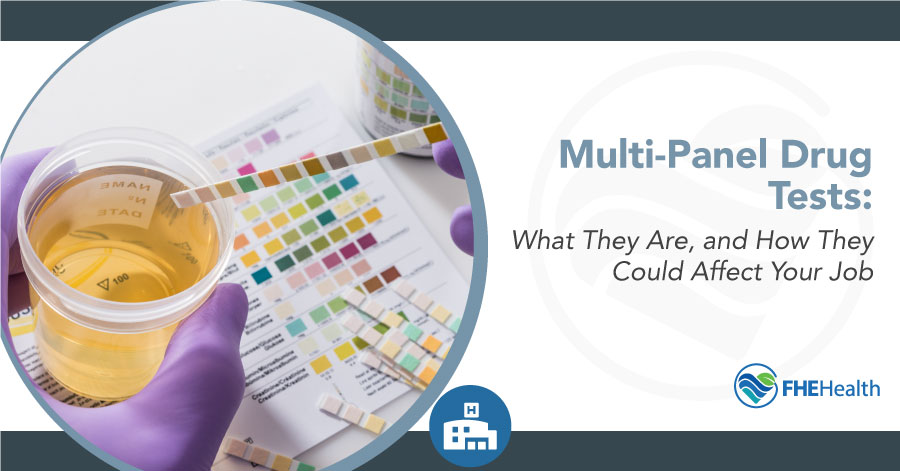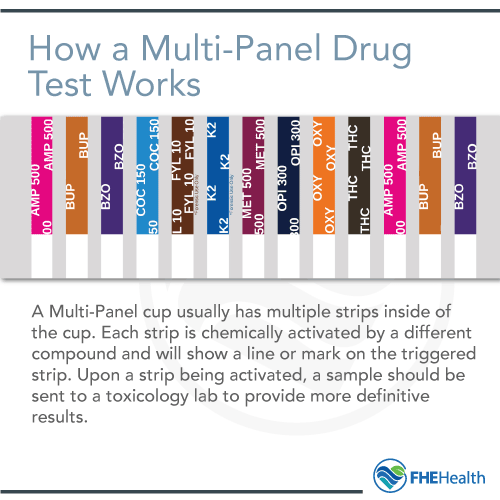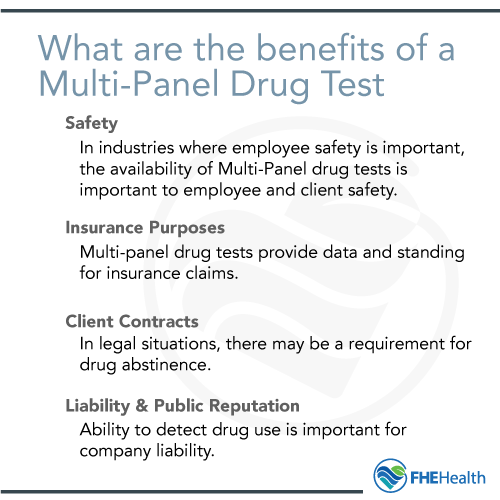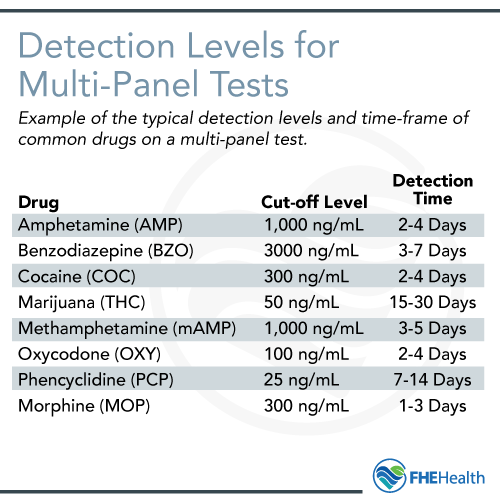
|
|
Nationwide, many companies issue drug tests to job candidates during the screening process and periodically throughout employment. While this is more common in blue-collar positions, any company, from investment banks to warehouses, has the right to test for drugs and alcohol. If tests come back positive, there may be consequences.
While many individuals believe that drug testing is unnecessary and punitive, there are benefits in the workplace. Unfortunately, overdoses from the nonmedical use of drugs and alcohol at work are on the rise, increasing at least 25% annually since 2012.
More workers test positive for substances than at any point over the last 12 years, with 4.2% of tests coming back positive for at least one substance. Drug misuse affects approximately 70% of workplaces.
As a job applicant or a gainfully employed individual, the reality of drug tests should be a point of consideration. Many employers use multi-panel drug tests as a way to screen for multiple substances at once. Without staying cognizant of corporate testing procedures, both before employment and during, prospective and current employees may be putting themselves at risk.
What Is a Multi-Panel Drug Test?
 Multi-panel drug tests screen for multiple substances at once rather than one substance per test. These tests are more comprehensive, testing for anything that an employer finds to be of consequence in the workplace.
Multi-panel drug tests screen for multiple substances at once rather than one substance per test. These tests are more comprehensive, testing for anything that an employer finds to be of consequence in the workplace.
Panels come in a variety of types, from three-panel tests that look for three substances to five, seven, to 12-panel tests. The choice of test is completely up to a tester’s discretion, and there may be no way to know which test was used until results come back.
Many multi-panel drug tests provide results via the cup used to collect urine samples. These cups have indicator strips that show positive or negative results without any external testing. These cups generally have a control feature to detect any adulteration.
While rare, some people who know they may test positive may attempt to evade testing efforts through methods like using synthetic urine. An employer usually treats getting caught using evasive measures the same way as testing positive for drugs.
Due to the ease of use and the ability to receive quick, clear results, testing cups are a very common method of testing for companies that don’t want to invest in more sophisticated techniques. Most cup manufacturers encourage users to send the sample off, after this ‘presumptive’ test for a ‘confirmative’ test for conclusive results. While multi-panel cups are fairly reliable, they do not always meet the highest threshold needed in court or for legal needs. Some companies, particularly those that have strict protocols due to employee responsibilities, such as driving 18-wheel trucks or operating on patients, may take things this step further while the employee is suspended.
In these cases, samples are sent away to a third-party testing facility for additional screening if a testing cup is inconclusive or if a testing cup is not used at all. Lab tests are often far more precise than cup tests because testers have access to more specific results, rather than a simple positive or negative.
Why Are Multi-Panel Drug Tests Used?
 Multi-panel drug tests are a very common tool to ensure employees’ abstinence from illicit drugs. The choice to partake in regular testing varies from company to company for a variety of reasons:
Multi-panel drug tests are a very common tool to ensure employees’ abstinence from illicit drugs. The choice to partake in regular testing varies from company to company for a variety of reasons:
- Safety: In professions where intoxication can pose dangers to products, processes, patients, clients or other employees, drug testing is intended to improve safety in the workplace.
- Insurance purposes: In some cases, drug use can raise insurance premiums. For companies with these types of insurance plans, maintaining a drug-free workplace can reduce insurance premiums paid by employers.
- Client contracts: For positions that involve client contracts, drug-free clauses may be a part of agreements. In order to maintain business, drug-free policies must be strictly enforced.
- Industry and public reputation: Employees who are visibly intoxicated can harm a company’s reputation, both within an industry and to the public. By enforcing drug-free policies, companies can minimize the likelihood of PR issues.
- Liability: In some industries, such as health care, intoxicated employees can create legal issues. If, for example, a doctor makes errors due to drug use, patients may have a legitimate reason to sue.
Common Drugs Included in Panels
The number of drugs tested depends on the size of the panel. Two-panel drug tests stick to the basics, such as marijuana and opiates, while more complex panels add extra substances. Possible testing substances include:
- THC (marijuana)
- Cocaine
- Methamphetamine
- Buprenorphine
- Benzodiazepine
- Barbiturates
- Opiates
- Oxycodone
- Amphetamine
- Phencyclidine
- Ecstasy
In general, the more panels used, the more comprehensive a test is. Most commonly abused substances, both illegal and legal with a prescription can be included in a drug test.
Cutoff Levels
The cutoff levels for detections can vary greatly from one test to another and one substance to another. For many substances, 300 nanograms per milliliter is standard, while others may be as high as 1000 ng/ml or as low as 10 ng/ml.
In general, these cutoffs are determined to be sensitive enough to detect a definite presence but not so sensitive as to cause false positives. Because of the manufacturing, transport and storage of these cups, they are less reliable or definitive than a lab-performed test.
What Happens If You Test Positive?
 If you fail a drug test either before or during employment, there are generally ramifications.
If you fail a drug test either before or during employment, there are generally ramifications.
If a job offer is contingent on a clean drug test, it’s very likely the offer will be rescinded if a test comes back positive. If drug use is due to a legal prescription, be sure to provide this information prior to testing. Be aware that employers often disregard medical marijuana use, and any positive test for THC is a reason for dismissal.
Testing positive while already employed can be a different story. In some cases, being open and honest with an employer can result in a second chance. Agreeing to go to rehabilitation can preserve employment, particularly for those who are willing to admit to an addiction.
In many cases, vacation time, sick time or even time under FMLA can be used to seek treatment, and this can be a saving grace. When time is used under the Family and Medical Leave Act to seek treatment, employees can’t be penalized by losing employment or benefits, although pay can be discontinued while away from work.
Unfortunately, not all employers are willing to overlook a positive drug test, no matter the reason. Termination can be unavoidable after testing positive, so employees who choose to use drugs during employment, disregarding company policy, should be aware of this.
If you are addicted to drugs or alcohol and have tested positive or are worried about testing positive, getting help can be imperative. At FHE Health, we offer a comprehensive step-down program to help those with substance use disorders begin recovery on the right foot. Contact us today at (833) 596-3502 to learn more about our treatment programs.






